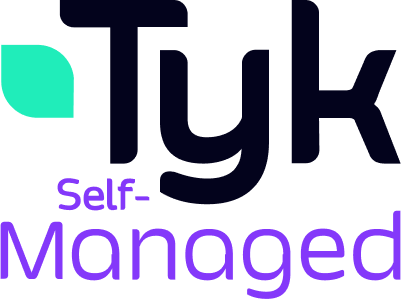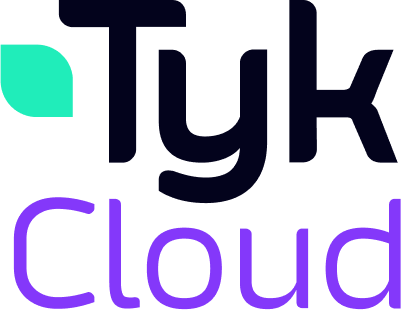Documentation | Forum | Blog | About
Tyk Gateway is the cloud-native, open source, enterprise-ready API Gateway supporting REST, GraphQL, TCP and gRPC protocols.
Built from the ground up, as the fastest API Gateway on the planet since 2014.
Tyk Gateway is provided ‘Batteries-included’, with no feature lockout. Enabling your organization to rate limit, auth, gather analytics, apply microservice patterns and more with ease.
Tyk runs natively on Kubernetes, if you prefer, thanks to the Tyk Kubernetes Operator

Everything you need to manage APIs. Follow the simple Get Started guide below 👇 |

The Enterprise API Management platform: Management Control Plane, Dashboard GUI & Developer Portal. Install Tyk Self Managed |

The Enterprise API Management platform SaaS: Management Control Plane, Dashboard GUI & Developer Portal. Deploy Tyk Cloud |
We’ll install Tyk, add auth, analytics, quotas and rate limiting to your API in under 5 minutes.
We recommend Tyk Gateway Docker as the quickest way to get started now. Later, you can move to one of our other supported distributions if you prefer.
git clone https://github.com/TykTechnologies/tyk-gateway-dockercd tyk-gateway-dockerdocker-compose upYou can run this in detach mode using the -d flag: docker-compose up -d
Congratulations, you’re done!
Your Tyk Gateway is now configured and ready to use. Confirm this by checking against the ‘hello’ endpoint:
curl localhost:8080/helloOutput:
{"status": "pass", "version": "v3.2.1", "description": "Tyk GW"}Next, visit adding your first API to Tyk and follow the Open Source instructions.
Other Installations are available:
Use any protocol: REST, SOAP, GraphQL, gRPC, and TCP.
Industry Standard Authentication: OIDC, JWT, bearer Tokens, Basic Auth, Client Certificates and more.
Open API Standards: Import your Swagger and OpenAPI Documents (OAS 2.X and OAS 3.0.1) to scaffold APIs in Tyk.
Ultra performant: Low latency, and thousands of rps with just a single CPU, horizontally and vertically scalable.
Content mediation: Transform all the things, from request or response headers to converting between SOAP and GraphQL.
Extensible Plugin Architecture: Customize Tyk’s middleware chain by writing plugins in your language of choice - from Python to Javascript to Go, or any language which supports gRPC.
Rate Limiting & Quotas: Protect your upstreams from becoming overloaded and/or apply limits for each consumer.
API Versioning - API Versions can be easily set and sunset (deprecated) at a specific time and date.
Granular Access Control - Grant access to one or more APIs on a per version and operation basis.
Blocklist/Allowlist/Ignore endpoint access - Enforce strict security models on a version-by-version basis to your access points.
Analytics logging - Record detailed usage data on who is using your APIs (raw data only)
CORS - Enable CORS for certain APIs so users can make browser-based requests
Webhooks - Trigger webhooks against events such as Quota Violations and Authentication failures
IP AllowListing - Block access to non-trusted IP addresses for more secure interactions
Hitless reloads - Tyk configurations can be altered dynamically and the service restarted without affecting any active request
Kubernetes native declarative API: using Open Source Tyk Operator (more info in OSS section)

Tyk Technologies uses the same API Gateway for all it’s applications. Protecting, securing, and processing APIs for thousands of organizations and businesses around the world. Ideal for Open Banking, building software in the clouds as well as exposing APIs to teams, partners & consumers.
Tyk Technologies maintains other Open Source Software which can be used in conjunction with Tyk API Gateway:
Tyk Pump - Pluggable analytics purger to move Analytics generated by your Tyk nodes to any back-end.
Tyk Operator - Brings API Management capabilities to Kubernetes. Configure Ingress, APIs, Security Policies, Authentication, Authorization, Mediation and more - all using Custom Resources and Kubernetes Native primitives
Tyk Identity Broker - Tyk Authentication Proxy for third-party login
Tyk Sync - Command line tool and library to manage and synchronise a Tyk installation with your version control system (VCS).
Tyk Mserv - Asset Server and gRPC host
All the documentation for Tyk Gateway and other OSS-related topics can be found at https://tyk.io/docs/tyk-oss-gateway/
- Tyk Community Board - Technical support from the Tyk Community
- Write a GitHub Issue - Feature requests & bug reports welcome
- Technical blog - Tyk announcements and updates
- Newsletters - Subscribe to our GraphQL & API newsletters
- If you are using Tyk give us a star ⭐️
Tyk is released under the MPL v2.0; please see LICENSE.md for a full version of the license.
Compile from Source
git clone https://github.com/TykTechnologies/tyk
go buildGo version 1.21 is required to build master, the current development version. Tyk is officially supported on Linux/amd64, Linux/i386 and Linux/arm64.
To run tests locally use the following command:
go test ./...Note that tests require Redis to be running on the same machine (default port).
To write your own test please use this guide https://github.com/TykTechnologies/tyk/blob/master/TESTING.md
For more information about contributing PRs and issues, see CONTRIBUTING.md.
—












